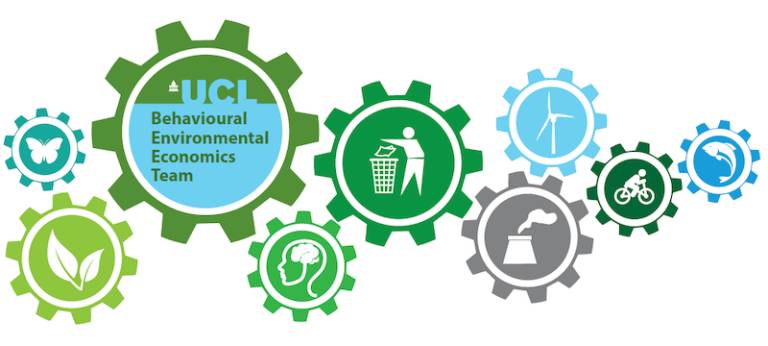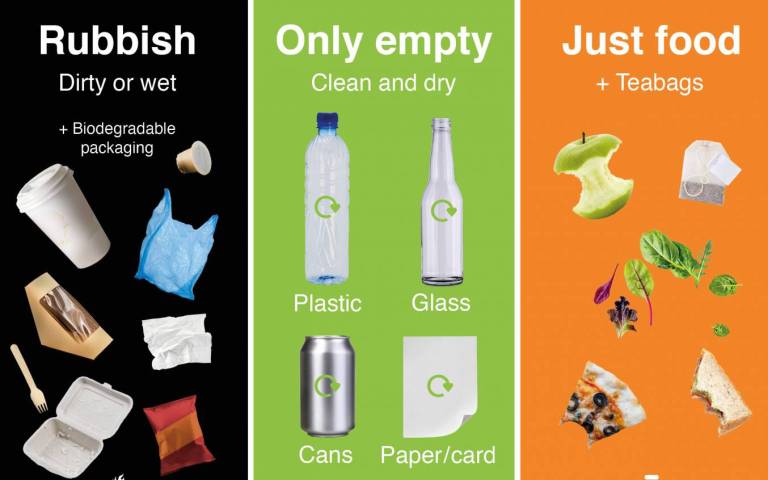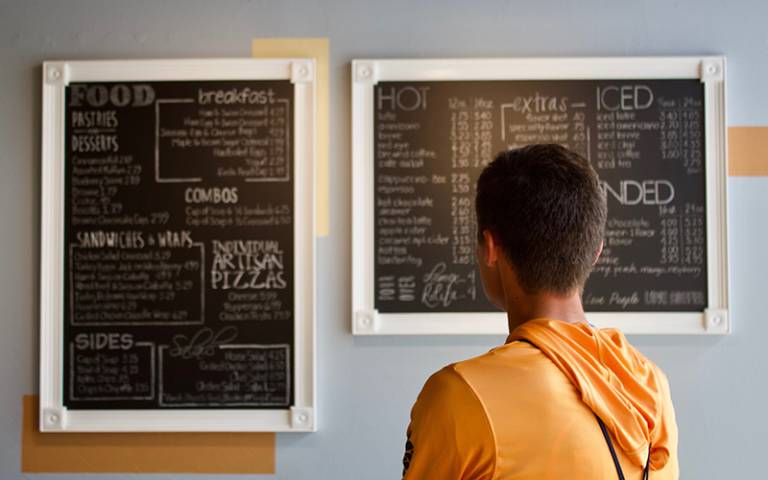Behavioural environmental economics team

Jump to: Research areas | Research stories | In teaching | Researchers
Research areas

The Behavioural Environmental Economics Team (BEET) applies behavioural economics to areas such as recycling, sustainable food consumption, individuals’ energy consumption, biodiversity.
Sustainable food consumption

Recycling

Clothing cooling strategies in offices

Behavioural economics and natural resources

Research stories

Field experiments on recycling: a mix of research, external engagement and teaching
Our research on recycling has been the basis of several trials within UCL campus: the first intervention improved recycling quality by 60% and the new bin instructions incorporate some of our original suggestions. In the most recent experiment, we managed to reduce percentage errors by 64%, 95%, and 58%, respectively in mixed-recycling, non-recycling, and food waste bins. The work on the first experiment was mentioned and awarded in the 2022 UCL Sustainable UCL Awards Ceremony. This topic allows many students to work on their dissertations, and some of them where the basis of publications in top international journals. Our research on recycling was also important to support Westminster City Council in many projects with residents and employees.
 Sustainable food consumption and nudges
Sustainable food consumption and nudges

We have undertaken several cutting-edge research projects on this topic in collaboration external organisations and companies. With our PhD student Arianna Buratto we supported online shops to nudge costumers towards more sustainable food choices and we worked with Westminster residents and employees as well as UCL staff on reducing households' food waste. We have recently worked with two restaurants on their menus, using salience, framing and transparent nudges: initial results show that applying the usual 'vegetarian' or 'vegan' labels reduces the consumption of sustainable dish options within a restaurant menu (this paper has been published in Ecological Economics).
Behavioural environmental economics in teaching



Behavioural Environmental Economics activities are a mix of research, teaching and external engagement, connecting all the three spheres. We have our Behavioural Economics and Game Theory for the Environment module, and through this our MSc students competed in national challenges and participated to our research through dissertations and funded projects, while our PhD students got the relevant teaching experience needed for their future careers. We run experiments within our classes, and many of our MSc students pursued a career or a PhD in the field. We have also published papers coming from students’ dissertations.
'Behavioural Economics and Game Theory for the Environment' is a module available to students on Economics and Policy of Energy and the Environment MSc students, and available to Sustainable Resources: Economics, Policy and Transitions MSc too. The module is built on quantitative material within the economics field and we apply the theories to both the environment and energy sectors. Dissertations linked to this module are usually online or field experiments, looking at different topics: food, biodiversity, fashion, recycling, energy use are just some of the most recent topics looked by our students. Examples of past dissertation titles:
- 'The effect of framing interventions on pro-environmental behaviours: an investigation into preferences for spent coffee ground recycling schemes'
- 'The Effects of Distance on Willingness to Pay Values for Improving Nature and the Environment: An Incentivized Experiment Approach'
- 'Investigating the role of altruism in motivating British consumers to eat sustainably, and whether this is impacted by humanistic and biospheric influences'
- 'Nudges: the effect of a picture of human eyes to improve recycling sorting behaviour'
Doctoral research (PhD)
Our PhD students are active members of the Behavioural Environmental Economics team (BEET), both in research and teaching. Recent topics focused on sustainable food consumption (with experiments online, in restaurants and private homes) as well as office energy saving strategies related to clothing.
- Arianna Buratto: 'How can we encourage more sustainable food consumption choices?'
- Yang Guanyu: 'The influence of social norms on personal cooling behaviours among financial office workers in Southern China.'
Researchers
Lorenzo Lotti
Associate Professor and Director of BEET
l.lotti@ucl.ac.uk
Lory Barile
Associate Professor and Deputy Director of BEET, University of Warwick
Lory.Barile@warwick.ac.uk
Michelle Shipworth
Associate Professor
m.shipworth@ucl.ac.uk
Shanali Pethiyagoda
PhD Student
shanali.pethiyagoda.18@ucl.ac.uk
Yang Guanyu
PhD Student
guanyu.yang.20@ucl.ac.uk
Arianna Buratto
PhD Student
arianna.buratto.15@ucl.ac.uk
Contributors
- Giovanni Manfredi giovanni.manfredi.20@alumni.ucl.ac.uk
- Johannes Schroeten johannes.schroeten.19@alumni.ucl.ac.uk
- An Zifei zifei.an.19@ucl.ac.uk
- Gerard Fox gerard@foxesfizz.com
- Alberto Bosco alberto.bosco.18@alumni.ucl.ac.uk
- Andrew Brown andrew.brown.18@alumni.ucl.ac.uk
- Iarina Corniciuc iarina.corniciuc@gmail.com
 Close
Close

